Keynote speaker
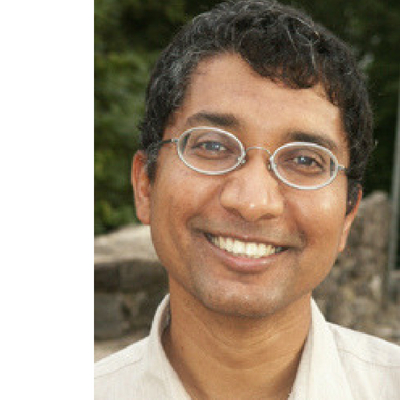 Raghu Ramakrishnan (Redmond, Washington) got his B.Tech. from IIT Madras in 1983 and his Ph.D. from the University of Texas at Austin in 1987. He was a member of the Database Systems Group in the Computer Sciences Department at the University of Wisconsin-Madison from 1987 to 2006, and was a co-founder of the UW Data Mining Institute. Ramakrishnan joined Microsoft in 2012 as a Technical Fellow and CTO, Information Services and heads the Cloud and Information Services Lab (CISL) with members in Redmond, WA and Mountain View, CA. From 2006 to 2012, he was a Yahoo! Fellow. In 1999, he founded QUIQ, a company that developed innovative collaborative customer support and knowledge management solutions used by companies such as Business Objects, Compaq, National Instruments, Network Appliances, Sun Microsystems, and others, and served as the Chairman and CTO until 2003, when QUIQ was acquired by Kanisa.
Raghu Ramakrishnan (Redmond, Washington) got his B.Tech. from IIT Madras in 1983 and his Ph.D. from the University of Texas at Austin in 1987. He was a member of the Database Systems Group in the Computer Sciences Department at the University of Wisconsin-Madison from 1987 to 2006, and was a co-founder of the UW Data Mining Institute. Ramakrishnan joined Microsoft in 2012 as a Technical Fellow and CTO, Information Services and heads the Cloud and Information Services Lab (CISL) with members in Redmond, WA and Mountain View, CA. From 2006 to 2012, he was a Yahoo! Fellow. In 1999, he founded QUIQ, a company that developed innovative collaborative customer support and knowledge management solutions used by companies such as Business Objects, Compaq, National Instruments, Network Appliances, Sun Microsystems, and others, and served as the Chairman and CTO until 2003, when QUIQ was acquired by Kanisa.
At UW-Madison, his research was in the area of database systems, with a focus on data retrieval and integration, analysis, and mining, and is often done in collaboration with researchers in industry. He led the CORAL project, which developed and distributed the CORAL deductive system, and contributed to recursive query language extensions in the SQL:1999 standard. He and his group have developed scalable algorithms for clustering, decision-tree construction, and itemset counting, and were among the first to investigate mining of continuously evolving and streaming data. His work on query optimization has found its way into several commercial database systems, and his work on extending SQL to deal with queries over sequences has influenced the design of window functions in SQL:1999. None of this would have been possible without a great group of former students; of all his contributions, he is proudest of this list.
Ramakrishnan received the ACM SIGKDD Innovation Award in 2018 (talk slides) and the ACM SIGMOD Contributions Award in 1999. He was elected Fellow of the Association for Computing Machinery (ACM) in 2001, Fellow of the IEEE in 2008, and has received several awards, including a David and Lucile Packard Foundation Fellowship in Science and Engineering, a Distinguished Alumnus Award from IIT-Madras, an NSF Presidential Young Investigator Award, and Faculty awards from IBM, Microsoft and Xerox. He was selected as a Vilas Associate at the University of Wisconsin in 1999. He has written the widely-used text Database Management Systems (WCB/McGraw-Hill), now in its third edition (with J. Gehrke). A list of his papers is available here.
Lecturers
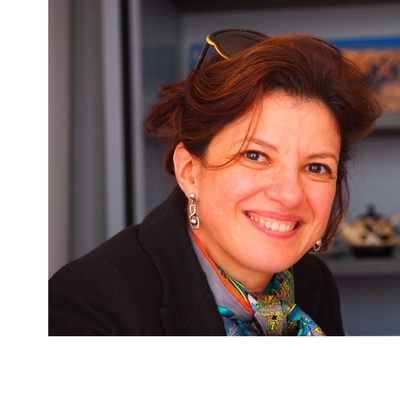 Sihem Amer-Yahia (Grenoble) is a CNRS Research Director at LIG in Grenoble where she leads the SLIDE team. Her interests are at the intersection of large-scale data management and user data exploration. Before joining CNRS, she was Principal Scientist at QCRI, Senior Scientist at Yahoo! Research and Member of Technical Staff at at&t Labs. Sihem served on the SIGMOD Executive Board, the VLDB Endowment, and the EDBT Board. She is the Editor-in-Chief of the VLDB Journal for Europe and Africa and has been on the editorial boards of TODS and the Information Systems Journal. She is chairing VLDB 2018 and WWW Tutorials 2018. Sihem received her Ph.D. in CS from Paris-Orsay and INRIA in 1999, and her Diplôme d’Ingénieur from INI, Algeria.
Sihem Amer-Yahia (Grenoble) is a CNRS Research Director at LIG in Grenoble where she leads the SLIDE team. Her interests are at the intersection of large-scale data management and user data exploration. Before joining CNRS, she was Principal Scientist at QCRI, Senior Scientist at Yahoo! Research and Member of Technical Staff at at&t Labs. Sihem served on the SIGMOD Executive Board, the VLDB Endowment, and the EDBT Board. She is the Editor-in-Chief of the VLDB Journal for Europe and Africa and has been on the editorial boards of TODS and the Information Systems Journal. She is chairing VLDB 2018 and WWW Tutorials 2018. Sihem received her Ph.D. in CS from Paris-Orsay and INRIA in 1999, and her Diplôme d’Ingénieur from INI, Algeria.

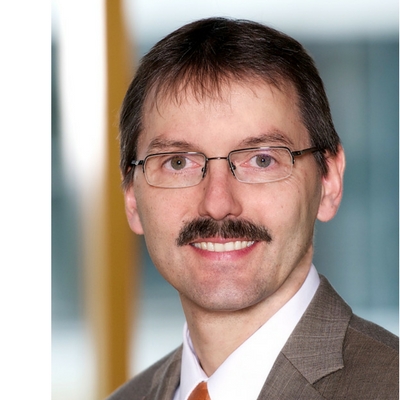
Daniel A. Keim (Konstanz) is professor and head of the Information Visualization and Data Analysis Research Group in the Computer Science Department of the University of Konstanz, Germany. He has been actively involved in data analysis and information visualization research for more than 25 years and developed a number of novel visual analysis techniques for very large data sets. He has been program co-chair of the IEEE InfoVis and IEEE VAST as well as the ACM SIGKDD conference, and he is chair of the IEEE VAST steering committee. He has been coordinator of the German Science Foundation funded Strategic Research Initiative “Scalable Visual Analytics” and scientific coordinator of the European Commission funded Coordination Action “Visual Analytics – Mastering the Information Age (VisMaster)”. Dr. Keim got his Ph.D. and habilitation degrees in computer science from the University of Munich. Before joining the University of Konstanz, Dr. Keim was associate professor at the University of Halle, Germany and Senior Technology Consultant at AT&T Shannon Research Labs, NJ, USA.

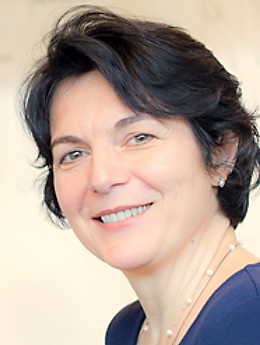
Natasa Milic-Frayling (Nottingham) is Professor and Chair of Data Science at the School of Computer Science University of Nottingham. She serves as a Chair of the Technology and Research Workgroup of the UNESCO PERSIST Programme and is a Founder of Intact Digital Ltd.
Natasa has a long track record in computer science research, focussed on new paradigms in digital content management and analysis. Prior to joining the University of Nottingham in 2015, she was a Principal Researcher at Microsoft Research (MSR) in Cambridge, UK since 1998. During her tenure at MSR, she led a cross-disciplinary research team working on Integrated Systems and served as a Director of the Research Partnership Programme.
Natasa is passionate about the impact of technology in personal and social computing. She promotes a dialogue between the ICT industry, consumers, and policy makers on critical issues that arise from the adoption of digital technologies. Her current focus is on digital obsolescence and privacy respecting design of computing systems and applications. She is actively working with the UNESCO PERSIST Programme as a Chair of the Research and Technology Workgroup, focussed on the preservation of World’s Digital Heritage. She is promoting new practices and policies in the life-cycle management of digital technologies and founded Intact Digital Ltd to bring to market economically sustainable methods and solutions to digital obsolescence.
In her research, Natasa is working on effective modelling techniques that connect data-driven approaches with world-knowledge of processes and data provenance. In her approaches, she take into account ethical considerations of computing profession and economic ecosystem within which the profession operates.
On these challenges issues, Natasa collaborates with a broader community of scholars and practitioners. She is a member of the ACM Europe Council and Chair of ACM Women Europe.
Natasa received her undergraduate degree in Applied Mathematics from University of Zagreb, Croatia in 1984 and a Doctorate in Applied Mathematics from Carnegie Mellon University, Pittsburgh in 1989.

 Christopher Ré (Stanford) is an associate professor affiliated with DAWN, Statistical Machine Learning Group, PPL, and SAIL (bio). He works on the foundations of the next generation of data analytics systems. These systems extend ideas from databases, machine learning, and theory, and their group is active in all areas. An application of their work is to make it dramatically easier to build machine learning systems to process dark data including text, images, and video. Their latest project is Snorkel, their code is on github, and there are blog posts about their work. By pushing the limits of weak supervision and data augmentation, they hope to make it radically easier to build machine learning systems and deepen their understanding of machine learning’s underpinnings. To validate their ideas, they continue to build systems that they hope change the way people do science and improve society. This work is with great partners in areas including paleobiology (Nature), drug repurposing, genomics, material science, and the fight against human trafficking (60 minutes, Forbes, Scientific American, WSJ, BBC, and Wired). Their work is supporting investigations. In the past, they have worked with a neutrino telescope and on economic indicators.
Christopher Ré (Stanford) is an associate professor affiliated with DAWN, Statistical Machine Learning Group, PPL, and SAIL (bio). He works on the foundations of the next generation of data analytics systems. These systems extend ideas from databases, machine learning, and theory, and their group is active in all areas. An application of their work is to make it dramatically easier to build machine learning systems to process dark data including text, images, and video. Their latest project is Snorkel, their code is on github, and there are blog posts about their work. By pushing the limits of weak supervision and data augmentation, they hope to make it radically easier to build machine learning systems and deepen their understanding of machine learning’s underpinnings. To validate their ideas, they continue to build systems that they hope change the way people do science and improve society. This work is with great partners in areas including paleobiology (Nature), drug repurposing, genomics, material science, and the fight against human trafficking (60 minutes, Forbes, Scientific American, WSJ, BBC, and Wired). Their work is supporting investigations. In the past, they have worked with a neutrino telescope and on economic indicators.

 Yannis Theodoridis (Pireaus) is Professor of Data Science at the Department of Informatics, University of Piraeus, Greece. He is also member of the Scientific Council of IMIS – Athena RIC. He serves or has served at the editorial boards of ACM Computing Surveys (2016-) and the Int’l Journal on Data Warehousing and Mining (2005-), the Symposium on Spatial and Temporal Databases – SSTD endowment (2010-), as general co-chair for SSTD’03, ECML/PKDD’11 and PCI’12, PC vice-chair for IEEE ICDM’08, and PC member for several conferences, including SIGMOD / PODS, ICDE, KDD, ICDM, etc. He has participated in a number of research projects related to Data Science and Big Data, with EU Horizon 2020 funded MASTER (2018-21), Track-and-Know (2018-20), and datAcron (2016-18) being the ongoing ones. His research interests include Data Science (big data management & analytics) for humans’ mobility-related information. He has co-authored three monographs and more than 100 refereed articles in scientific journals and conferences with over 10,000 citations so far, according to Google Scholar. He holds a Dipl. Eng. (1990) and Ph.D. (1996) in Computer Engineering, both from the National Technical University of Athens (NTUA).
Yannis Theodoridis (Pireaus) is Professor of Data Science at the Department of Informatics, University of Piraeus, Greece. He is also member of the Scientific Council of IMIS – Athena RIC. He serves or has served at the editorial boards of ACM Computing Surveys (2016-) and the Int’l Journal on Data Warehousing and Mining (2005-), the Symposium on Spatial and Temporal Databases – SSTD endowment (2010-), as general co-chair for SSTD’03, ECML/PKDD’11 and PCI’12, PC vice-chair for IEEE ICDM’08, and PC member for several conferences, including SIGMOD / PODS, ICDE, KDD, ICDM, etc. He has participated in a number of research projects related to Data Science and Big Data, with EU Horizon 2020 funded MASTER (2018-21), Track-and-Know (2018-20), and datAcron (2016-18) being the ongoing ones. His research interests include Data Science (big data management & analytics) for humans’ mobility-related information. He has co-authored three monographs and more than 100 refereed articles in scientific journals and conferences with over 10,000 citations so far, according to Google Scholar. He holds a Dipl. Eng. (1990) and Ph.D. (1996) in Computer Engineering, both from the National Technical University of Athens (NTUA).

 Chris Williams (Edinbourgh) is Professor of Machine Learning in the School of Informatics, University of Edinburgh, and University Liaison Director for the Alan Turing Institute. He is interested in a wide range of theoretical and practical issues in machine learning, statistical pattern recognition, probabilistic graphical models and computer vision. This includes theoretical foundations, the development of new models and algorithms, and applications. His main areas of research are in visual object recognition and image understanding, models for understanding time-series, data analytics using messy data, unsupervised learning, and Gaussian processes.
Chris Williams (Edinbourgh) is Professor of Machine Learning in the School of Informatics, University of Edinburgh, and University Liaison Director for the Alan Turing Institute. He is interested in a wide range of theoretical and practical issues in machine learning, statistical pattern recognition, probabilistic graphical models and computer vision. This includes theoretical foundations, the development of new models and algorithms, and applications. His main areas of research are in visual object recognition and image understanding, models for understanding time-series, data analytics using messy data, unsupervised learning, and Gaussian processes.
Meet the Speakers
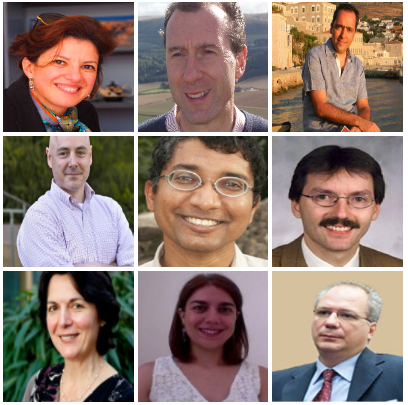
Contact Us
Reach out to us and we will respond as soon as possible. You can send us an email to [email protected].
